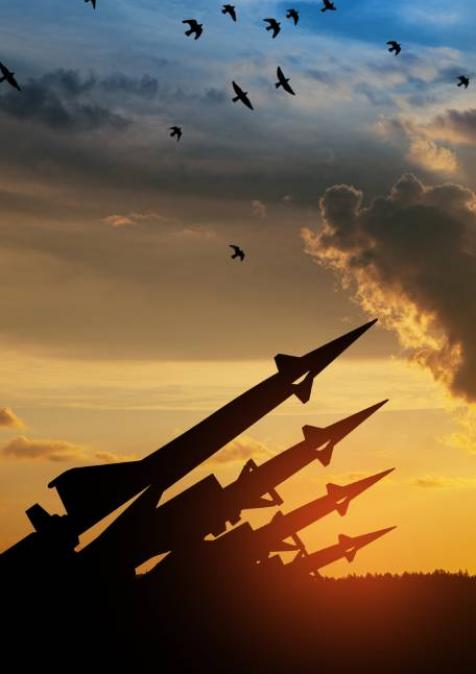Publications /
Opinion
In Turkey, Republican People’s Party (CHP) candidate Ekrem Imamoglu decisively won the rerun of the mayoral election in Istanbul last weekend. The new elections were called after pressure from Turkish President Recep Tayyip Erdogan, whose Justice and Development Party (AKP) lost the original vote in March by a narrow margin.
Below is an international press review of events leading to the elections' results, by Helmut Sorge, former Foreign editor, and Middle East expert for Germany's leading newsmagazine "Der Spiegel", and columnist at the Policy Center for the New South.
“THE MOST MOMENTOUS POLITICAL EARTHQUAKE”
Once upon a time Recep Tayyip Erdogan was a successful mayor of Istanbul, a city of 15 million these days. The politician, motivated by wisdom and tradition of Islam, very early in his political career was aware of electoral arithmetic : ”Who wins Istanbul, wins Turkey.”
Erdogan not only won his nation 18 years ago, but he rules with authority, repression and grandeur ever since. A modern sultan of the Ottoman Empire for some, a dictator for others. A few weeks ago, the duplicitous Turkish leader might have lost his grip on absolute power. Moreover, he forfeited his image of invincibility and unfailing leadership. His party lost an election in Istanbul. Not once, but twice. Because Erdogan wanted to reserve history. Erase his blunder of calling for a new election, after he unexpectedly lost the first. Despite being involved in the electoral campaign, often speaking at eight rallies a day, his Justice and Development Party, AKP, gathered just 48.51 percent of the vote on March 31, the opposition, CHP, the Republican People’s Party of the modern nations founder, Kemal Atatuerk, 48.79 percent.
A tiny margin, with major consequences. Not only did Istanbul vote against Erdogan’s AKP, but half a dozen of the major Turkish cities turned away from the ruling party. Impossible it seemed. Erdogan had purged the army, the police and the courts. He curtailed the media. He strengthened his power in the constitution. Now this, the most momentous political earthquake to shake Mr. Erdogan in nearly two decades of basically uncontested control at the helm of Turkey. ”It’s a catastrophy for him”, said Asli Aydintasbas, a senior fellow at the European Council on Foreign Relations. ”We now know he is not invincible.”
“JUST WHEN IT SEEMED THAT DEMOCRACY WAS ALL BUT DEAD”
Erdogan ignored reality. Defeat for him was as impossible as for Adolf Hitler surrender in the battle for Berlin. The march-election result was to be contested in court, and since the judicial power is controlled by the authoritarian President , the High Election Council decided that the election had to be repeated because of fraud and other irregularities. June 23 was the day to reverse the annoying, maddening loss, the return to absolute power, the repair of a tainted, stigmatized image. The nation of 80 million people did not have any hope. Ekrem Imamoglu, 49, the opposition candidate, was hardly known, the mayor of Beylikduzu, a drab district on the edge of Istanbul. Mr. Erdogan had waged an aggressively negative campaign, accusing the opposition of criminality, or terrorism, and fueling nationalistic anger. His party’s candidate was a trusted former prime minister, Binali Yildirim, 63.
On June 23 possibly history was written, a turning point for Erdogan’s reign. ”Just when it seemed that democracy was all but dead” (“New York Times”), voters delivered a sharp rebuke to their self-righteous President, who still controls the parliament and was reelected last year for a new five-year term with vastly expanded powers. Erdogan has trimmed civil liberties, purged and jailed political opponents (after a 2016 coup attempt), thus the municipal election loss, also in the capital Ankara, was of tectonic dimension—806 000 more votes for the opposition in Istanbul than for Erdogan‘s candidate. Even the conservative district of Istanbul, where Erdogan resides, Uskudar, abandoned his party. 12 of the 39 Istanbul districts, which had voted for the government party in March, swung behind Mr. Imamoglu in June. Imamoglu brought the various strands of the opposition together: his CHP, the founding party of the Republic, the Good Party, its nationalist partner, and even the Kurd- backed People’s Democratic Party did support Imamoglu, whose win now “poses an existential threat to Erdogan” as “ Spiegel online headlined an article-”from this point on Erdogan will be fighting for his political survival.”
"THE ECONOMIC DUC TAPE BECAME UNDONE"
A “stunning victory, stated the “Council on Foreign Relations (June 24,2019), a new low for Erdogan and his long ruling party, clearly “a significant set back” - the president and his AKP weaker now that any time since they came to power almost two decades ago. The new mayor ‘s second victory “heralds the arrival of a great democratic hope for Turkey”, states Maximilian Popp ( Der Spiegel,28 June 2019)“ and perhaps even the beginning of the end of the Erdogan era. ”According to calculations by the Istanbul based think tank Edam the opposition party is now governing in areas responsible for over two/thirds of the Turkish economy. Although Erdogan still controls most state institutions, especially the judiciary, author Popp believes “the era in which Erdogan could govern unimpeded is now over.”
Apparently, Erdogan and his advisers, often chosen not for their competence but loyalty, misjudged the mood of the people. Arrests of journalists and critics continue, as do trials for those accused of insulting the president. On March 8 the police released tear gas on thousands of women attending an International Women’s Day protest that had been held for 17 years. The loss of the mayoral election in Istanbul was the “most significant sign” (New York Times) that support for Mr. Erdogan’s Justice and Development Party has become vulnerable as the economy has weakened. ”Even before the loss, reported Carlotta Gall and Jack Ewing from Istanbul, Mr. Erdogan had used the government budget, the central bank and government-controlled banks to defend the currency, forestall a credit crunch, and even “to pay for stands selling subsidized vegetables in the hope of keeping voters on his side.”
HEADED TO AN ECONOMIC BREAKDOWN
But “the economic duct tape”, as the “New York Times” predicted on May 21, that the government has used to maintain the support of working-class voters is “beginning to come undone, economists say. It looks increasingly unlikely to hold until June 23.”The president is now facing a reinvigorated opposition, and he is no longer as uncontroversial within his own party as he once was. After the election AKP lawmaker Mustafa Yeneroglu for example tweeted : ”We lost Istanbul because we forfeited our moral superiority.” And, as American politicians like to proclaim, “it is the economy, stupid.” The country tumbled into a recession in March, unemployment exceeds 10 percent and up to 30 percent among young people. The Turkish lira lost 28 percent in its value in 2018 and continues to weaken. Inflation reached 20 percent. Turkeys medium- and long-term foreign currency debts exceeded 328 billion dollars at the end of 2018, with private companies responsible for about two-thirds of the debts. Private companies confront a further 138 billion in foreign exchange debt due in the next 12 months. Given that Turkey‘s overall economic production was about 766 billion last year, “these numbers are disturbing”, judged the “New York Times” (10 July 2019)
The abrupt dismissal in early July of the nation‘s central bank governor Murat Cetinkaya because he had failed instructions by Erdogan on interest rates seemed to global investors as a signal that the Turkish president is intent, as Peter S. Goodman reported from Arhavi, Turkey, “on recklessly lowering interest rates to accelerate growth.” The palpable threat of imminent collapse has given way to a sense of muddling through as the government unleashes credit to defer an unenviable reckoning. Turkeys’ currency remains battered, while its foreign debts remain vast. Inflation and joblessness are alarmingly high. Economic growth is minimal, and anxiety is considerable amid the sense that more trouble lies ahead. “This is playing out as Turkey contends with political uncertainty after the shocking rebuke of Mr. Erdogan’s governing party in the recent Istanbul elections, writes Times reporter Goodman “Mr. Erdogan has consistently pushed for growth at any cost. He has famously argued that high interest rates cause inflation, which is like blaming abstinence for a hangover. “It is all coming apart”, predicts Fadi Hakura, a Turkey expert at Chatham House, a research institution in London. The government is so wedded to this consumption model this will ultimately head to an economic breakdown.”
Any economic meltdown would accelerate the economic misery of Istanbul, the social, economic and cultural center of the country. 2O percent of the 15 million population live under the poverty line. When Erdogan moved into city hall 25 years ago, he was considered an Islamist ideologue, but as mayor he proved to be a pragmatist who freed the city from garbage and improved its water system. The German author Maximilian Popp predicts If the new mayor, Mr. Imamoglu manages to govern as successfully as Erdogan, expanding public transport for example, making apartment buildings earthquake prove and combats pollution, “it will be impossible to deny his candidacy in the next presidential elections—2023.”This was an election about Istanbul” Erdogan’s new rival declared, “it was at the same time a struggle for democracy.”
The opinions expressed in this blog post are the views of the author.









